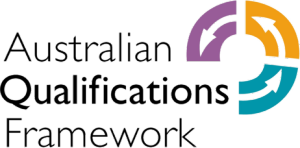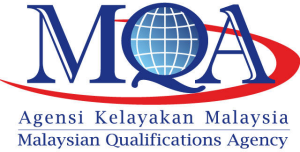Related Research Articles
Technical and further education or simply TAFE, is the common name in English-speaking countries in Oceania for vocational education, as a subset of tertiary education. TAFE institutions provide a wide range of predominantly vocational courses.
A Master of Business Administration is a postgraduate degree focused on business administration. The core courses in an MBA program cover various areas of business administration such as accounting, applied statistics, human resources, business communication, business ethics, business law, strategic management, business strategy, finance, managerial economics, management, entrepreneurship, marketing, supply-chain management, and operations management in a manner most relevant to management analysis and strategy. It originated in the United States in the early 20th century when the country industrialized and companies sought scientific management.
A diploma mill is a company or organization that claims to be a higher education institution but provides illegitimate academic degrees and diplomas for a fee. The degrees can be fabricated (made-up), falsified (fake), or misrepresented. These degrees may claim to give credit for relevant life experience, but should not be confused with legitimate prior learning assessment programs. They may also claim to evaluate work history or require submission of a thesis or dissertation for evaluation to give an appearance of authenticity. Diploma mills are frequently supported by accreditation mills, set up for the purpose of providing an appearance of authenticity. The term may also be used pejoratively to describe an accredited institution with low academic admission standards and a low job placement rate. An individual may or may not be aware that the degree they have obtained is not wholly legitimate. In either case, legal issues can arise if the qualification is used in resumes.
A graduate diploma is generally a qualification taken after completion of a first degree, although the level of study varies in different countries from being at the same level as the final year of a bachelor's degree to being at a level between a master's degree and a doctorate. In some countries the graduate diploma and postgraduate diploma are synonymous, while in others the postgraduate diploma is a higher qualification.
Higher education in Mauritius includes colleges, universities and other technical institutions. Public university education has been free to students since 2019. The sector is managed by the Higher Education Commission (HEC) which has the responsibility for allocating public funds, and fostering, planning and coordinating the development of post-secondary education and training. Formerly the Tertiary Education Commission, in 2020 it was reformed into the HEC and a separate Quality Assurance Authority (QAA) for auditing of qualifications.
A postgraduate diploma is a postgraduate qualification awarded after a university degree, which supplements the original degree and awards them with a graduate diploma. Countries that award postgraduate diplomas include but are not limited to Bangladesh, Barbados, Belgium, Brazil, Canada, Chile, Colombia, Germany, Hong Kong, Jamaica, Spain, Kenya, South Africa, Sudan, India, Ireland, the Netherlands, New Zealand, Nigeria, Republic of Panama the Philippines, Portugal, Russia, Pakistan, Poland, Saudi Arabia, Singapore, Sweden, the United Kingdom, Sri Lanka, Trinidad and Tobago and Zimbabwe. Level of education and recognition differ per issuing country.

The Australian Qualifications Framework (AQF) specifies the standards for educational qualifications in Australia. It is administered nationally by the Australian Government's Department of Industry, with oversight from the States and Territories, through the Standing Council of Tertiary Education Skills and Employment. While the AQF specifies the standards, education and training organisations are authorised by accrediting authorities to issue a qualification.
Henley Business School, Africa, in the Paulshof suburb of Johannesburg, is a campus of the British-based Henley Business School, one of the oldest business schools in Europe with operations in 17 countries across the globe. The African institution shares international accreditation with its parent and is also locally accredited in South Africa. The South African campus has offered the MBA in South Africa since 1992. In 2002, the South African location became a fully owned subsidiary of the British parent. As the operation in South Africa is the only Henley Business School in the African continent, it has students living in neighbouring countries studying and being supported through this office.
Education Facilitators, a privately held company in South Africa, was a holding and operating company in the education management industry that consisted of three trading divisions, one in professional services and two college brands that operated throughout southern and central Africa from its founding in 1994 to its closure in 2005.
An online degree is an academic degree that can be earned primarily or entirely through the use of an Internet-connected computer, rather than attending college in a traditional campus setting. Improvements in technology, the increasing use of the Internet worldwide, and the need for people to have flexible school schedules while they are working have led to a proliferation of online colleges that award associate, bachelor's, master's, and doctoral degrees.

The University of Nicosia was established in 1980 and its main campus is located in Nicosia, the capital city of Cyprus. It also runs study centres in Athens, Bucharest and New York.

The Malaysian Qualifications Agency is a statutory body in Malaysia set up under the Malaysian Qualifications Act 2007 to accredit academic programs provided by educational institutions providing post secondary or higher education and facilitate the accreditation and articulation of qualifications.
A graduate certificate is an educational credential representing completion of specialized training at the college or university level. A graduate certificate can be awarded by universities upon completion of certain coursework indicating mastering of a specific subject area. Graduate certificates represent training at different levels in different countries and can be at bachelor's degree or master's degree level.

The Graduate School of Business (GSB) is the business school of the University of Cape Town (UCT), South Africa's oldest university.

The Commission for Academic Accreditation (CAA) is the UAE Federal Government Quality Assurance Agency for Higher Education. Working collaboratively with relevant national and local authorities in the Emirates, the CAA has a key leadership role in securing and developing the quality of higher education in the UAE. As a matter of the highest priority, it sets out to safeguard academic standards, and to assure and enhance the quality of learning opportunities provided for students in UAE's higher education institutions (HEIs). It undertakes licensure of HEIs in the UAE and accreditation of their award-bearing academic programs. In order to be entered in the National Register and receive Federal Recognition any HEIs offering post-secondary education in the UAE must receive institutional licensure and accreditation of their degree and diploma. CAA accreditation incorporates recognition of Diploma, Higher Diploma, Bachelor's degree, Postgraduate Diploma, Master's degree and Doctorate Degree. These Degree ranges from level 5-10 as per National Qualification Framework of UAE.
Higher education accreditation is a type of quality assurance process under which services and operations of post-secondary educational institutions or programs are evaluated to determine if applicable standards are met. If standards are met, accredited status is granted by the agency.
Alternative pathways in education are alternative means of obtaining educational qualifications, other than the traditional means of gaining access to or completing the required study to obtain the educational qualifications.

Regenesys Business School is a private business schools based in Johannesburg, South Africa. The Regenesys Group includes Regenesys School of Public Management, Regenesys Foundation, MyWealth Investments, a loans department and having campuses in South Africa, Mumbai and Lagos. Regenesys India is also the first business school in India to give financial aid to students.

The IIE's Varsity College is an educational brand of The Independent Institute of Education. The IIE is the most accredited private higher education provider in SA and it is registered with the Department of Higher Education and Training.
References
- ↑ The Observatory on Borderless Higher Education (2004). Breaking News Archive – June 2004 Archived 1 January 2008 at the Wayback Machine . Retrieved 2 February 2008.